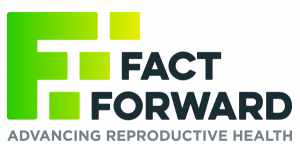In this training, participants will improve their skills in talking with adolescents about delicate topics and answering sensitive questions. By becoming an Askable Adult, participants will gain essential tools to support teens in making healthy decisions about relationships, love, and sex.
Training Hub
The Sex Education Collaborative Training Hub lists trainings for sex educators, facilitators, and other professionals on best practices for sharing important information with clients and the public. From teaching anatomy inclusively to effectively addressing bias in the classroom to addressing racial justice and equity in sex education, the Training Hub includes trainings, technical assistance, and policy support from state, regional, and national leaders in the field of sex education.
Please note: The Training Hub includes both in-person and online professional trainings. If you see a training you are interested in and it isn’t listed as virtual, please reach out directly to any of our members to find out what's possible!
Trainings Offered by State-Based and National Organizations
Displaying results 51 - 55 of 130Askable Adult: Talking to Teens About Tough Topics
- Indicator 1 (K-12): Demonstrate three techniques to create an inclusive and affirming learning environment. (S)
- Indicator 1 (K-12): Describe three distinguishing characteristics between healthy and unhealthy relationships, involving family, friends, and/or romantic partners.
- Indicator 2 (K-12): Explain three ways that healthy relationships can positively impact personal well-being.
- Indicator 2 (K-12): Demonstrate the ability to effectively respond to three different types of challenging questions. (S)
- Indicator 1 (K-12): Explain the differences between personal and universal values relating to sexuality.
- Indicator 2 (K-12): Describe how verbal and nonverbal expression of personal values, and comfort with topics related to sex education, could impact one’s teaching
Cardea provides a range of TA services to support school districts in the adoption and implementation of sound sexual health education policies and procedures. Through direct services, training, and capacity building, Cardea assists districts in adopting best practices, building the capacity of their faculty and staff, and engaging their parents and community. TA begins with the dissemination of policy, research, practices, and resources through peer-learning communities/communities of practice. Additional individualized district TA supports system changes, capacity building, training and education that results in significant changes to practices within a district and changing community perceptions and norms.
SIECUS is well poised to provide policy support as we are the only organization whose sole mission is to advance sex education policy at the federal, state, and local levels. For the past 55 years, SIECUS has advocated for the rights of all people to comprehensive sexuality education, and the full spectrum of sexual and reproductive health services. SIECUS is more committed than ever to the fight for the equitable provision of comprehensive sexuality information to vulnerable and marginalized populations especially people of color and LGBTQI identifying youth—and for the elimination of all barriers to access to quality reproductive health services, for reproductive justice to be actualized.
SIECUS equips state and local leaders with the knowledge they need to be confident and powerful advocates. Our staff conduct workshops and trainings around the country and provide one-on-one technical assistance by phone and email. Our policy support helps state and local leaders become stronger advocates for their missions and empowers them to addresses the root cause of key reproductive justice and sexual rights issues, moving us toward a society where issues like gender equity, sexual and reproductive health, racial justice, LGBTQ inclusion, consent, personal safety, and autonomy are well—established as part of our normal reality. Our website is a place where advocates can search our robust collection of toolkits, fact sheets, reports, and our signature report, the SIECUS State Profiles, as well as connect with a team member for one-on-one technical assistance.
Advocates for Youth can offer technical assistance on a wide range of topics including district, state, and national policy, best practices in teaching sexuality education, creating more LGBTQ+ inculsive schools and organizations, increasing the capacity of health care providers to meet the sexual health needs of adolescents, youth-adult partnership models, writing curricula, and/or discrete lesson plans, etc. Please contact us so we can learn more about your needs and how we can best support your efforts.
Teaching Strategies for Sex Education
Why do we need to use a variety of teaching strategies when teaching sex education? Which ones work best, and why? What can go wrong, and what can we do about it? This training will help instructors answer all of these questions, and feel more competent in delivering engaging and interactive sex education.
- Indicator 1 (K-12): Demonstrate three techniques to create an inclusive and affirming learning environment. (S)
- Indicator 1 (K-12): Demonstrate the ability to build rapport with students. (S)
- Indicator 2 (K-12): Demonstrate three student-centered instructional approaches that support a variety of learning styles. (S)
- Indicator 3 (K-12): Explain the differences between positive vs. shaming approaches to teaching sex education.
- Indicator 5 (K-12): Describe three effective strategies for practicing skills with students.
- Indicator 1 (K-12): Explain three reasons why it is important to respond to every question students ask when teaching sex education.
- Indicator 2 (K-12): Demonstrate the ability to effectively respond to three different types of challenging questions. (S)
Additional Trainings offered by out-of-state organizations
- ‹ previous
- 22 of 42
- next ›
How to Have ‘The Talk’ with Teens
By the end of this lesson, participants will gain knowledge and develop skills required to have an open conversation with teens about their sexual and reproductive health.
This training is designed for:
- Parents
- Clergy
- Community Workers
- Indicator 1 (K-12): Describe how puberty prepares the human body for the potential to reproduce.
- Indicator 2 (K-12): List three physical, three social, and three emotional changes that occur during puberty.
- Indicator 3 (K-12): Identify three practices that students can adopt for maintaining healthy habits beginning during puberty.





